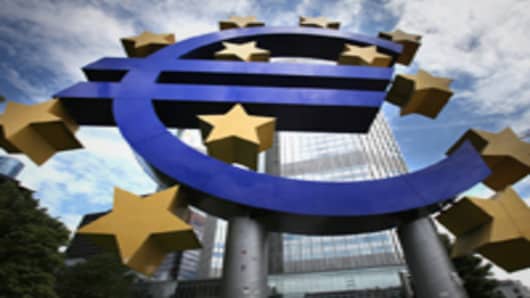The euro zone is lacking in “lifeboats” as the Titanic once was, a UK politician warned Monday as employment and manufacturing data painted a gloomy picture of the region’s prospects.
Former Defense Secretary Liam Fox, from the UK’s ruling Conservative Party, said in a speech Monday: “Off the euro sailed, lauded as unsinkable as once the Titanic was, and still no one worried about the lifeboats.”
Manufacturing shrank again in June and companies are preparing for more bad news to come, according to Markit's Eurozone Manufacturing Purchasing Managers' Index (PMI), which was unchanged at 45.1 in June — the lowest reading in two years.
Euro zone jobs figures also made for difficult reading, with unemployment in the region hitting its highest ever level of 11.1 percent in May. There are continuing worries about youth unemployment, with the countries worst-affected by the crisis suffering badly.
The euro zone still looks in need of rescue, but where are the lifeboats?
The region is now suffering from its highest unemployment rate since the 1960s, and possibly earlier, according to James Ashley, senior European economist at RBC Capital Markets.
Spain and France were the main drags on May’s figures, as 80,000 more people lost their jobs in Spain and France suffered its biggest monthly rise in joblessness this year.
"Companies are clearly preparing for worse to come, cutting back on both staff numbers and stocks of raw materials at the fastest rates for two-and-a-half years," said Chris Williamson, chief economist at data provider Markit.
"The PMI suggests that the goods-producing sector contracted by around 1 percent in the second quarter, with this steep rate of decline looking set to accelerate further as we move into the second half of the year," he said.
There was some good news on costs, which are falling after the recent sharp fall in oil prices — in the UK, the input prices balance was down from 51.6 to 40.3, its lowest level for more than 3 years.
Yet there will still be pressure on the European Central Bankand Bank of England to throw out extra rubber rings to keep the massive euro ship afloat when they meet on Thursday.
The ECB is under increasing pressure to drop interest rates even lower than their current all-time low of 1 percent, while the Bank of England may announce further gilt purchases or even an expansion of quantitative easing.



